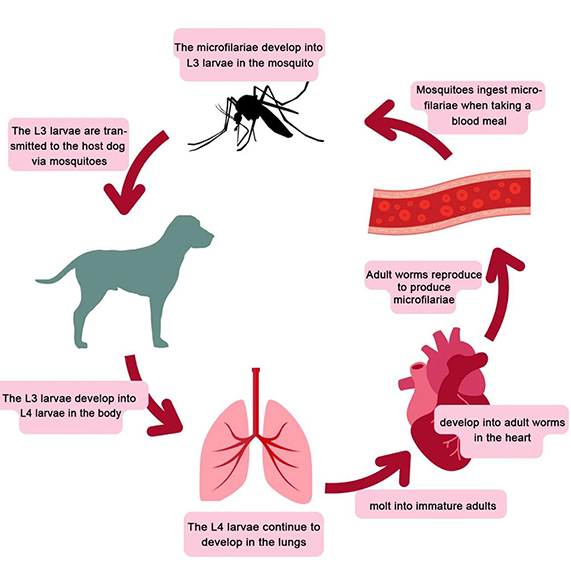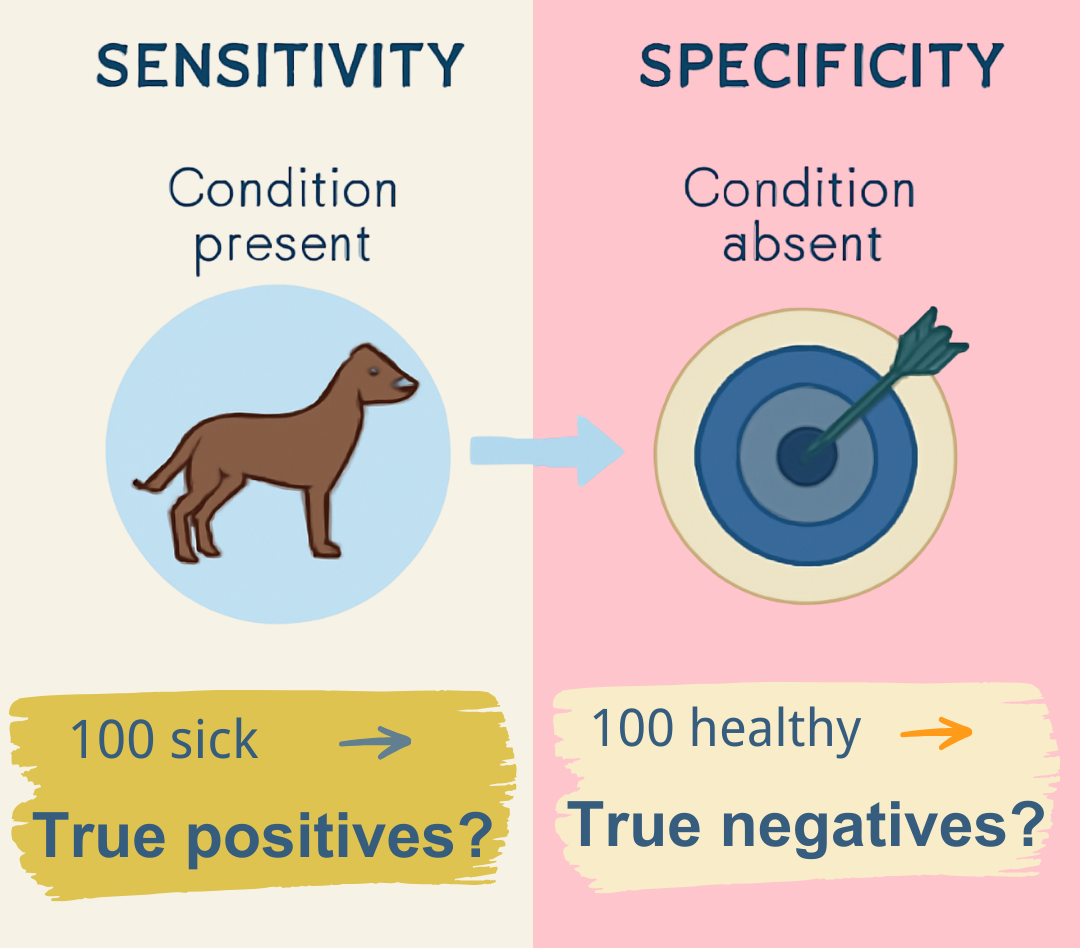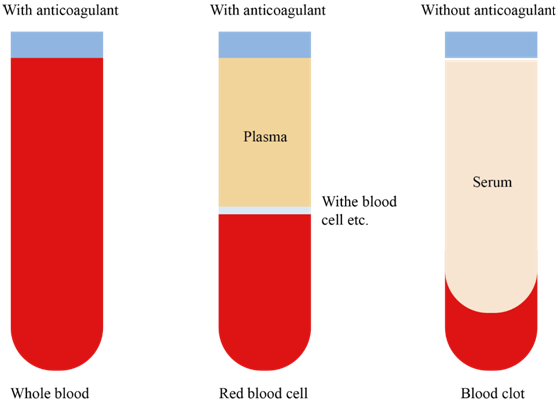Canine Heartworm Disease: The Silent "Hidden Killer" – Essential Prevention & Treatment Guide for Dog Owners
When you see your dog running in the sun, you may not
realize that a parasite called "heartworm"
is silently threatening its life. This disease, spread by mosquitoes, has subtle early symptoms, but once it progresses to
late stages, treatment becomes difficult and it can be fatal. Let’s take a
closer look at this "silent killer" and learn how to protect our
furry friends.

Pathogen Overview
Heartworm is a type of filarial nematode transmitted
by mosquitoes. Adult worms can grow up to 10-30 cm long and cause severe,
potentially fatal disease. Heartworms live in the heart, lungs, and blood
vessels of infected mammals, damaging these organs and leading to serious
complications. Dogs are the primary hosts, but other species, including wild
canids, ferrets, cats, and even humans, can be infected.
Life Cycle of Heartworm
Adult female heartworms produce microfilariae in the host’s body. When a mosquito bites an infected animal, it picks up these microfilariae. Within 10 to 14 days, the microfilariae develop into infective larvae (L3). During blood feeding, mosquitoes transmit these larvae to new hosts. Inside the host, the larvae mature through several stages, eventually becoming adult worms in 6-7 months, where they can live for 5-7 years, causing ongoing damage.
Clinical Symptoms
Heartworm disease is a chronic, progressive condition.
In early stages, dogs may show no symptoms, but as the infection progresses,
they can develop chronic lung disease and congestive heart failure. Symptoms
may include coughing, exercise
intolerance, weight loss, lethargy, and difficulty breathing. In severe cases,
symptoms like labored breathing, heart murmur, fainting, liver enlargement, and
kidney failure may occur.

Prevention and Detection
Prevention is crucial, as treatment for heartworm
infection is risky and lengthy. In the U.S., the American Heartworm Society
(AHS) and the Companion Animal Parasite Council (CAPC) recommend annual antigen and microfilariae testing for
dogs over 7 months old. Antigen tests
detect specific proteins secreted by female heartworms, but may produce false
negatives if the infection is early or the parasite load is low. Microfilariae
testing checks for the presence of larvae in the dog’s blood and is reliable
after about 6 months of infection.
Treatment
Treatment for heartworm disease is complex and
high-risk, involving multiple stages of medication to kill adult worms and
strict exercise restrictions to prevent severe complications like pulmonary
embolism. Antibiotics, anti-inflammatory drugs, and anticoagulants are also
used during the treatment, which may take several months. Even with successful
treatment, the heart and lung damage is often permanent.
Regular preventive medication is the best strategy to
protect your dog, avoiding the need for expensive and high-risk treatments. Even if your dog has been on preventive
medicine, annual heartworm testing is recommended.
As an expert in animal diagnostics,Yaoshuoling
Technology Co., Ltd has developed an antigen detection kit for heartworm,
offering quick, easy, and accurate testing to help veterinarians and pet owners
identify infection risks early. For more information or to get testing
solutions, please contact us through the "Contact Us" section on our
website. Our professional team is here to assist you.





